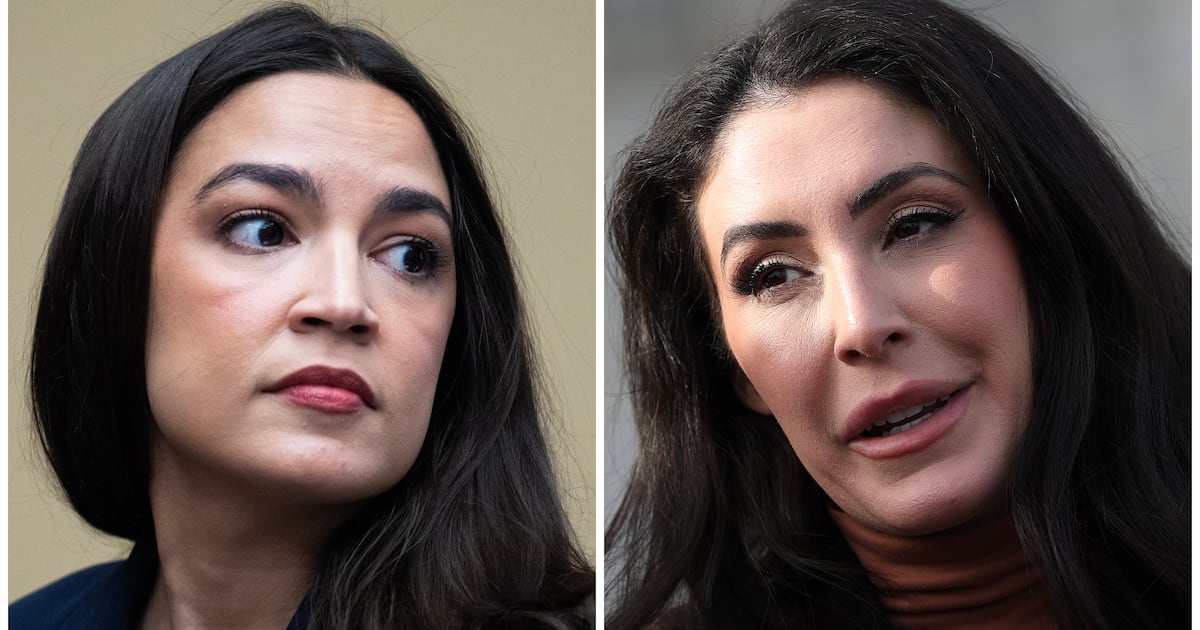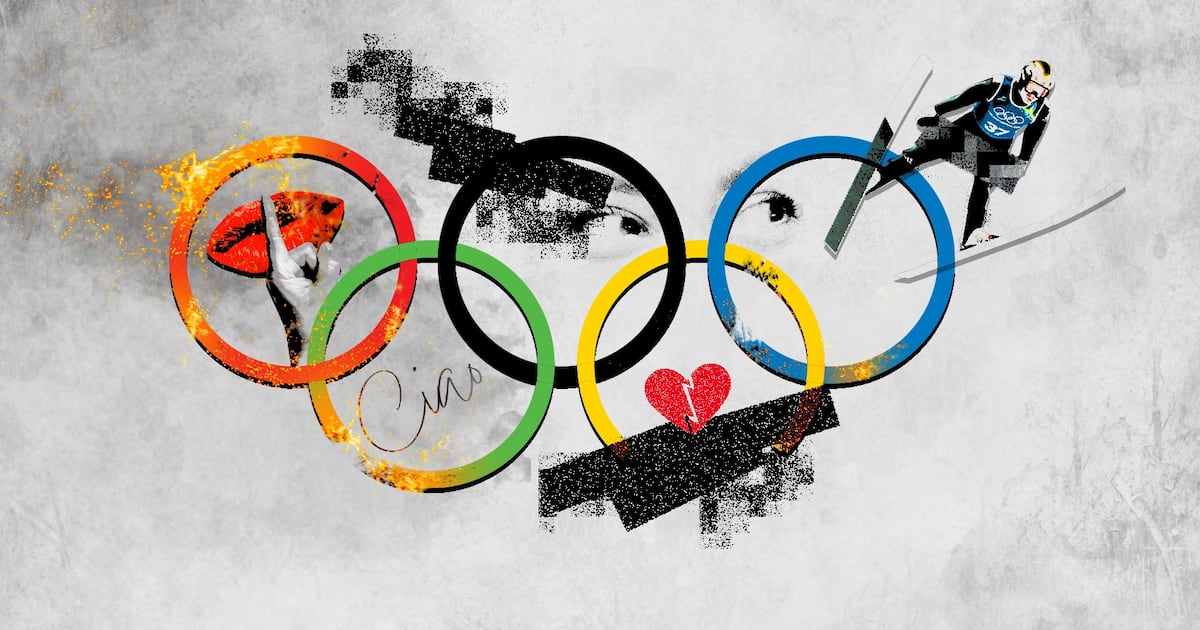When it was announced that 11 years after its season finale Will and Grace was going to be revived on NBC, the first question on fans’ minds was: How?
The series famously ended with a time jump more than a decade into the future, with Eric McCormack’s Will and Debra Messing’s Grace not just respectively married and with grown children, but also estranged. Reuniting while dropping their kids off at college, it’s revealed that the gay lawyer and his best friend hadn’t spoken in years. Wouldn’t that make things complicated when crafting a revival?
With Will and Grace starting its first day of production this week—and NBC already announcing a season two—series co-creators David Kohan and Max Mutchnick announced how they’re going to deal with that finale: by pretending it never happened.
That sound you hear is Will and Grace fans collectively channeling Karen, chugging a martini, and wondering in a high-pitched squeal, “Honey, what’s going on, what’s happening, what is this?”
Allow the duo to explain.
“The question we asked ourselves was if we were just watching the show, what would we want? What would the people who care about the show want?” Kohan tells The Daily Beast, speaking in the lobby bar at the Beverly Hilton in Los Angeles. “We were talking about the prospect of having Will and Grace as parents who were separately raising children with their families, and none of us wanted to see that.”
“I didn’t want to write it, either,” adds Mutchnick, sitting to Kohan’s left. “We live it.”
“It’s so dull,” echoes Kohan with a smile, as Mutchnick continues: “I didn’t think they’d make good episodes. If children were in the mix, we wouldn’t be able to write the thing that the four of them do the best, which is be together as friends. I had faith in the audience that they would want the same thing that we would want in terms of what we gave them on this show. And that’s the four of them.”
While the idea of a revival had been secretly whispered about between the writing partners and NBC head Bob Greenblatt, it was a video produced about the election last fall that crystallized the theory that, not only was there demand for a reunion series, but that creatively, it could work. Just as long as it went back to the Will and Grace we know and love.
“I think the reaction to the online video that we made told us everything, because that was just seeing them back together as friends,” says Mutchnick.
Or, as McCormack tells us in a separate interview, “Everyone just wants to see season four again. That’s kind of what it is.”
McCormack knew handling the finale would be tricky when he signed on. Truthfully, he thinks the show’s biggest fans will be relieved that Will and Grace’s awkward estrangement won’t be revisited. (He’s right.) But he also knew that there would be a strong reaction to the rewriting of history.
“The only thing I ever heard in terms of Will and Grace fandom that was divided was the finale,” he says. “Some people didn’t like it, which surprised me because I really liked it at the time. I loved that moment when the kids met and everybody thought it was a flashback to us. It was a great moment to be in front of a live audience.”
“That said, we closed a book we didn’t know we’d ever need to reopen,” he continues. “So what do we do? Do we go somewhere between those things, where the kids are 11? It seemed like, wait a minute, it’s a sitcom. We can rewrite the rules anytime we want. I don’t think there will be that many fans upset that we rewrote the finale, and those who are upset would probably have been more upset if the show had become a show about parenting.”
It’s a back-to-basics approach that speaks to one of the things that worked so well for the show when it first began airing in 1998 and one of the few things that haven’t changed about our society in the 11 years since its finale: the dynamic between a gay man and his straight female best friend is as interesting—and as common—as ever.
“It’s evergreen,” says Kohan. “What’s interesting now is once upon a time I felt like the interest [in depicting that relationship] was ‘this is new.’ I think the interest now is ‘oh, this is familiar.’ That’s the appeal. I think that comfort is a huge part of the appeal of bringing it back and why people seem to be receptive to the idea of it. Because these are anxious times and that’s something that I felt comfortable with.”
It’s an idea we bring up to Messing in a separate interview. “In television, historically when there’s a man and a woman who are the titular leads, the whole question is when will it happen? Will they and when will they,” she says. “From day one, you knew it was never going to happen. So it was sort of like, OK, all bets are off. All rules about storytelling are off. I think that made people sit back and exhale, but also lean in and think, ‘Wait a minute. What is it going to be then?’ That might have been part of the original allure.”
The entire cast and creative team we spoke to about the revival insisted that not much will have changed in term of the feel and tone of the show. But aside from the finale, there was one more crucial thing to address about bringing the series back to life.
To that end, we can confirm that the new Will and Grace will be woke.
“We know that word,” laughs Mutchnick. “We just put it in the script yesterday.”
The conversation stems from hand-wringing, even among Will and Grace fans, over jokes about the gay community that were funny and acceptable then (and are still entertaining when you watch old episodes as byproducts of the time in which they aired) would be considered unacceptable and even offensive in the context of how culture has progressed today.
How does the revival address that while still being true to the fabric and the humor that made it a success in the first place?
“It’s this idea that if you deal with these characters as living, breathing people and you think, ‘Well how have they evolved in the last 10 or 12 years in a way that our sensibilities have changed and grown and evolved over the last 12 years?’” Kohan says. “I think it keeps you out of that kind of trouble.”
“There are jokes that we would have made 12 years ago that we won’t make today,” Mutchnick adds. “And there are things that we can say today that we couldn’t back then. That’s happening and we’ve put a lot of it down on paper already. It’s come out of us very naturally and it doesn’t really feel like we’re pressed or pushed in the writing, because I think we’re staying very true to ourselves and what the show is. The characters grew at the same rate.”
Note: This is the first of The Daily Beast’s Will and Grace coverage from interviews with the creators and the entire cast. There is much more to come. You are warned. And you are welcome.






